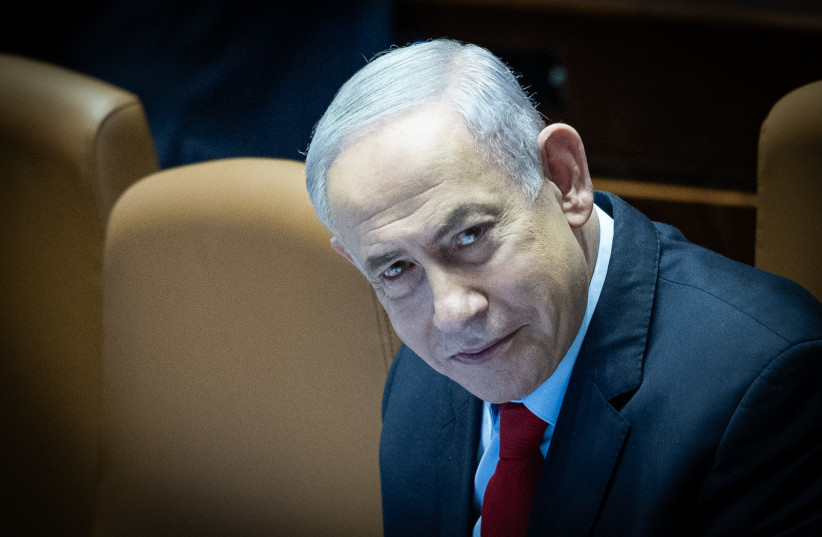The International Criminal Court may be considering issuing international arrest warrants in the relatively near future against Prime Minister Benjamin Netanyahu and other top officials for alleged war crimes, N12 reported Thursday night.
Around 125 countries are members of the ICC, including essentially all of Europe, and are bound by treaty law to honor the ICC’s arrest warrants, though there have been examples of countries protesting such warrants and refusing to honor them.
The report was extremely puzzling given that the ICC has not decided all of the relevant jurisdictional questions it is supposed to decide before reaching an arrest warrants stage.
For example, the ICC is first supposed to address the issue of complementarity, which is the legal question of whether Israel properly probes itself sufficiently such that the ICC would not have the right to address any war crimes complaints based on complementary or additional jurisdiction.
There has been significant debate about this issue given that the IDF has a robust preliminary probes and criminal probes mechanism for investigating war crimes.

It carried out 32 criminal probes and around 500 preliminary probes regarding the 2014 Gaza conflict and is expected to carry out thousands of probes regarding the much longer and larger current war.
The ICC might still decide that the probes do not lead to enough convictions or jail time, but this was always expected to be a process where Israel and its allies would weigh in over a period of months or longer, as occurred regarding the question of whether the ICC could recognize Palestine as a state to enable it to have basic jurisdiction from an ICC member state from 2019-2021.
Netanyahu met with officials to address the issue
The Thursday report said Netanyahu met urgently with Strategic Affairs Minister Ron Dermer, Justice Minister Yariv Levin, and Foreign Minister Israel Katz to address the issue and to appeal to Western allies to assist.
In addition, the report said Netanyahu discussed the issue with top British and German officials who were visiting Israel this week.
One way the ICC might avoid the procedural jurisdictional question of complementarity would be if it initially goes after Israel merely on a theory of war crimes relating to humanitarian aid issues.
This would seem to be a longshot given that other than the first few days of the war when Israel was still enduring an invasion, the IDF has facilitated some amount of humanitarian aid.
As the IDF’s position strengthened security-wise, that aid has grown.
ICC Prosecutor Karim Khan did accuse Israel in fall 2023 of slow-rolling humanitarian aid, arguing this could be a war crime.
It was unclear at the time how he would make such a case given that Israel was permitting aid, and was arguing that security conditions were slowing the aid process.
That said, the ICC could argue that Israel’s recent increase from 100-200 trucks of aid per day to over 500 trucks of aid per day shows that if the political will had been present in earlier months, more aid could have streamed through despite security challenges.
Still, any case would need to prove that people are actually dying of starvation and not merely eating less or in danger of future food security issues.
An alternative scenario could be that the ICC prosecutor will argue that a letter sent to Israel in 2021 to provide all evidentiary updates and other potential letters since could be used against Israel as saying that it has not provided a defense or its counter-evidence that it is probing, given that to date the IDF has said it is still months or more away from issuing probe results for even some cases.
Yet, another scenario could be that the ICC prosecutor has carried out a secret evidentiary process before the ICC Pre Trial Chamber to get permission to issue the arrest warrants.
It is also possible that the report is completely wrong or mischaracterizes certain more minor ICC developments or mischaracterizes the time frame for such developments.
Neither the Prime Minister’s Office, the Foreign Ministry, the Justice Ministry, the IDF legal division, nor the ICC prosecutor’s office had responded by press time.
